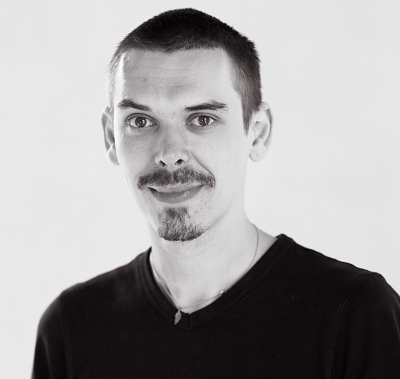 Internet already the largest ad medium in eight markets, including the US, UK and China
Internet already the largest ad medium in eight markets, including the US, UK and China
WARC Global Advertising Trends – Drivers of online growth
WARC, the international marketing intelligence service, has found that internet ad formats are set to account for 47.7% – or $298.1bn – of all media spend worldwide (across 96 markets) this year, and will account for over half for the first time next year, if the current trajectory maintains.
Internet ad formats already account for the majority of media spend in eight markets: Sweden (61.5%, or $2.5bn in 2018), the UK (61.1%, $17.9bn), China (59.4%, $51.2bn), Denmark (57.0%, $1.3bn), Norway (54.0%, $1.1bn), Russia (52.8%, $5.5bn), Australia (51.3%, $6.3bn) and the US (51.4%, $107.5bn).
The $107.5bn spent on internet advertising in the US – the world’s largest internet market – made it the dominant ad medium for the first time last year, while the balance tipped in internet’s favour during 2016 in both China and the UK, the second and third largest online markets respectively.
Across WARC’s 12 key markets – Australia, Brazil, Canada, China, France, Germany, India, Italy, Japan, Russia, the UK and the US – internet is expected to account for over half of media spend for the first time this year, drawing 52.7% of combined media spend within these markets.
James McDonald, Managing Editor, WARC Data, and author of the research, comments: “When the Dotcom bubble burst at the turn of the century, internet advertising accounted for three cents in every ad dollar; two decades later, it will take the lion’s share. While the first wave of internet growth was driven by banner ads and search keywords on desktop computers, the second phase has been propelled by social media advertising delivered on mobile devices.
“Underpinning recent growth is the proliferation of programmatic ad trades based on consumers’ data, harvested during day-to-day browsing, shopping, streaming and socialising. Such data will be core to future ad growth, too, as people spend more time with a broadening range of internet-connected devices.”
Against this backdrop, WARC’s research on the drivers of online growth highlights three key trends:
Internet advertising spend has grown five times faster than traditional media since 2010
WARC’s latest global forecasts show that, when indexed, internet adspend will have grown five times faster than investment in non-internet media since 2010, rising to a forecast $298.1bn this year. This means that over three-quarters (76.6%, or $228.3bn) of internet ad market value will have been generated during this timeframe.
As well as outpacing the wider advertising market, spend on internet formats has grown faster than internet users over the period. This will result in advertisers investing $73.91 per internet user this year, more than double the $35.43 spent per user in 2010. This rate varies substantially among WARC’s key markets: Australia ($304.32 in advertiser spend per internet user this year), Brazil ($33.16), Canada ($163.84), China ($67.79), France ($131.42), Germany ($136.10), India ($2.63), Italy ($91.89), Japan ($111.43), Russia ($51.87), the UK ($294.29) and the US ($491.50).
Mobile is now the primary online channel and will account for 95% of internet ad growth in 2019
Today, the term ‘internet’ can now be regarded as shorthand for ‘mobile’; mobile ads are expected to take a 58.8% share of all internet spend this year ($175.3bn) following rapid growth since 2010, when it drew just 2.0% of internet adspend.
Globally, mobile adspend surpassed that for other internet channels (including desktop, tablet and connected TVs) combined for the first time in 2018. Among WARC’s key markets, mobile is expected to overtake TV in absolute terms across this year.
Mobile has contributed on average 62.1% towards internet adspend growth each year since 2010 and its importance is growing, from a 2.3% growth contribution in 2010 to a forecast 94.6% this year.
Display formats contribute the most towards internet adspend growth, with social media and online video driving ad investment up
Online display formats, including banner ads, rich media, advertorial and sponsorship, online video and social media (among others) are expected to draw 45.1% ($118.5bn) of internet advertising spend across WARC’s 12 key markets this year, up from a share of 38.0% in 2010. These formats, combined, have accounted for over half of internet growth since 2016.
Within online display, half of ad investment growth has come from social media each year since 2015. The $38.8bn spent on social media ads across the US, China and the UK last year equated to 47.7% of total online display adspend in these markets, up from a share of 29.2% in 2014. Social’s share of online display in these markets is expected to reach 52.4% this year, while Facebook’s share of US social adspend is expected to be 84.8% (compared to 83.4% in 2018).
Online video’s contribution to online display ad growth has consistently been over a third since 2015. As such, video content is expected to draw one in three dollars spent on online display advertising across WARC’s key markets this year, up from a share of 17.0% in 2014.
Global media analysis – Drivers of online growth
47.7% internet’s share of all media spend globally this year.
53.6% internet growth in key markets coming from online display formats
58.1% social media’s share of US online display adspend.
58.8% mobile’s share of internet adspend this year.
83.4% Facebook’s share of US social media adspend.
94.6% internet growth coming from mobile ad formats.
Other key media intelligence new on WARC Data
Emotion and storytelling top creative strategies in Effective 100
91% of small businesses will increase their adspend this year
Alibaba earned nearly RMB80bn ($12bn) from commerce last quarter
Living room most popular location for smart speakers
Nearly two-thirds of people don’t trust information from social media


